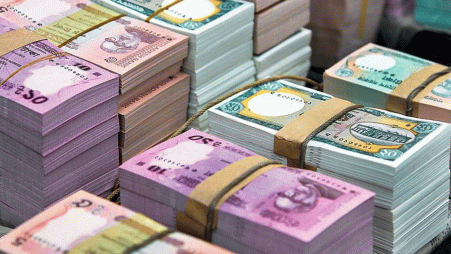Bangladesh taka will extend slide on election, tariffs: BMI
The currency is forecast to average 125 per dollar over the year as a whole, said Sayaka Shiba, senior country risk analyst at the research firm in Singapore. That compares to an average of 115.35 during 2024 and Tuesday’s close of 121.86, according to data compiled by Bloomberg.

The Bangladesh taka is set to extend this year's decline due to potential political instability in the South Asian country and the increase in US tariffs, according to BMI, a unit of Fitch Solutions.
The currency is forecast to average 125 per dollar over the year as a whole, said Sayaka Shiba, senior country risk analyst at the research firm in Singapore. That compares to an average of 115.35 during 2024 and Tuesday's close of 121.86, according to data compiled by Bloomberg.
The taka has been weakening since the central bank shifted to a more market-determined exchange rate in May to fulfill conditions set in its $4.7 billion International Monetary Fund program. Negatives weighing on the currency include an election expected to be held by next June, and concern about the impact of US President Donald Trump's threat to impose a tariff rate of 37% on the country.
"The increase in domestic political instability related to the upcoming election timing and outcome poses a significant risk" to the taka, Shiba said in an interview. Higher US levies could also hurt the nation's exports and the current-account balance, she said.
Bangladesh's interim government that came to power following the overthrow of Prime Minister Sheikh Hasina in August is seeking to combat slowing economic growth and sticky inflation. The new administration led by Nobel laureate Muhammad Yunus announced its first budget Monday aimed at shrinking the fiscal deficit and cutting spending to unlock billions of dollars of IMF funding.
The central bank is likely to maintain its new exchange-rate regime — where it sets an undisclosed band with reference rates — until inflation risks are brought under control, BMI's Shiba said.
"Given the risk of rapid and significant weakening of the Bangladeshi taka, which increases import prices and pressures inflation already high, we believe Bangladesh Bank will maintain the current regime until inflation risks alleviate and the fundamental robustness of its financial system improves," she said.



 Keep updated, follow The Business Standard's Google news channel
Keep updated, follow The Business Standard's Google news channel
















